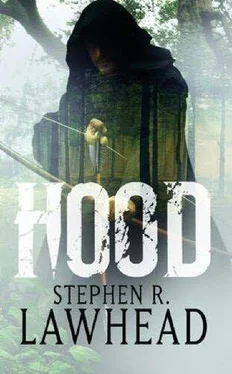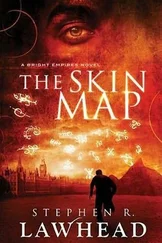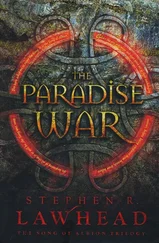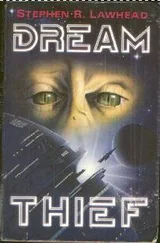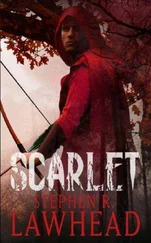Stephen Lawhead - Hood
Здесь есть возможность читать онлайн «Stephen Lawhead - Hood» весь текст электронной книги совершенно бесплатно (целиком полную версию без сокращений). В некоторых случаях можно слушать аудио, скачать через торрент в формате fb2 и присутствует краткое содержание. Жанр: Фэнтези, на английском языке. Описание произведения, (предисловие) а так же отзывы посетителей доступны на портале библиотеки ЛибКат.
- Название:Hood
- Автор:
- Жанр:
- Год:неизвестен
- ISBN:нет данных
- Рейтинг книги:4 / 5. Голосов: 1
-
Избранное:Добавить в избранное
- Отзывы:
-
Ваша оценка:
- 80
- 1
- 2
- 3
- 4
- 5
Hood: краткое содержание, описание и аннотация
Предлагаем к чтению аннотацию, описание, краткое содержание или предисловие (зависит от того, что написал сам автор книги «Hood»). Если вы не нашли необходимую информацию о книге — напишите в комментариях, мы постараемся отыскать её.
Hood — читать онлайн бесплатно полную книгу (весь текст) целиком
Ниже представлен текст книги, разбитый по страницам. Система сохранения места последней прочитанной страницы, позволяет с удобством читать онлайн бесплатно книгу «Hood», без необходимости каждый раз заново искать на чём Вы остановились. Поставьте закладку, и сможете в любой момент перейти на страницу, на которой закончили чтение.
Интервал:
Закладка:
Six for the Virgins who watch and wait.
Seven for the Bards in halls of oak.
Eight for the patches on Padraig's cloak.
Nine for the lepers at the gate.
Ten for the rays of Love's pure lightAye, ten for the rays of Love's pure light.
Though the young man did not wake, the softly droning words and the simple rhythm seemed to soothe him. His breathing slowed and deepened, and his stiff muscles eased.
Angharad heard the change in his breathing and smiled to herself. She went to test the heat of the potion in the cauldron; it was still hot but no longer bubbling. Picking up the big copper kettle, she carried it to where Bran lay, drew her three-legged stool near, and began gently pulling away the fleeces that covered him.
His flesh was dull and waxen, his wounds livid and angry. The right side of his face was roundly swollen, the skin discoloured. The teeth marks on his arm where the hound had fastened its jaws were puncture wounds, deep but clean-as was the slash between his shoulder blades. Painful as any of these wounds might have been, none were life-threatening. Rather, it was the ragged gash in the centre of his chest that worried her most. The iron blade had not pricked a lung, nor pierced the watery sac of the heart; but the lance head had driven cloth from his tunic and hair from the hound deep into the cut. These things, in her experience, could make even insignificant injuries fester and turn sour, bringing on fever, delirium, and finally death.
She sighed as she placed her fingertips on the bulbous swelling. The flesh was hot beneath her gentle fingertips, oozing watery blood and yellow pus. He had been wandering a few days before she had found him, and the wounds had already begun to go rancid. Therefore, she had taken great pains to prepare the proper infusion with which to wash the wound and had gathered the instruments to enlarge it so she could carefully dig out any scraps of foreign matter.
Angharad had expected him to come to her injured. She had foreseen the fight and knew the outcome, but the wounds he had suffered would tax her skill sorely. He was a strong one, his strength green and potent; even so, he would need all of it, and more besides, if he was to survive.
Bending to the cauldron, she took up a bit of clean cloth from a neat stack she had prepared; she folded the cloth and soaked it in the hot liquid and then gently, gently applied it to the gash in his chest. The heat caused him to moan in his sleep, but he did not wake. She let the cloth remain and, taking up another, soaked it and placed it on the side of his face.
When the second cloth had been carefully arranged, she returned to the first, removed it, placed it back in the cauldron, and began again.
So it went.
All through the night, the old woman remained hunched on her little stool, moving with slow purpose from one wound to the next, removing the cloth, dipping it, and replacing it. When the potion in the cauldron cooled, she returned it to the embers of her fire and brought it back to the boil. Heat was needed to draw out the poison of the wounds.
While she worked, she sang-an old song in the Elder Tongue, something she had learned from her own banfaith many, many years ago-the tale of Bran the Blessed and his journey to Tir na' Nog. It was a song about a champion who, after a long sojourn in the Otherworld, had returned to perform the Hero Feat for his people: a tale full of hope, longing, and triumph-fitting, she thought, for the man beneath her care.
As dawn seeped into the rainy sky to the east, Angharad finished. She set aside the cauldron and rose slowly, arching her back to ease the ache there. Then she knelt once more and, taking up a handful of dried moss, placed it gently over the young man's wounds before covering him with the sheepskins. Later that day, she would begin the purification procedure all over again, and the next day, too, and perhaps the next. But for now, it was enough.
She rose and returned the cauldron to the edge of the fire ring, and settling herself once more on the three-legged stool, she pulled her cloak around her shoulders and closed her eyes on the day.
)Bran did not know how long he had been lying in the dark, listening to the rain: a day, perhaps many days. Try as he might, he could not remember ever hearing such a sound before. He could vaguely remember what rain was and what it looked like, but so far as he could recall, this was the first time he had ever heard it patter down on earth and rocks and drip from the canopy of leaves to the sodden forest pathways below.
Unable to move, he was content to lie with his eyes closed, listening to the oddly musical sound. He did not want to open his eyes for fear of what he might see. Flitting through his shattered memory were weird and worrisome images: a snarling dog that snapped at his throat; a body floating in a pool; a black-shadowed hole in the ground that was both stronghold and tomb; and a hideous, decrepit old woman bearing a steaming cauldron. It was a nightmare, he told himself. the dreams of a pain-haunted man and nothing more.
He knew he was badly injured. He did not know how this had come to be nor even how he knew it to be true. Nevertheless, he accepted this fact without question. Then again, perhaps it was part of the same nightmare as the old crone-who could say?
However it was, the woman seemed to be intimately connected with another curious image that kept spinning through his mind: that of himself, wrapped in soft white fleece and lying full-length on a bed of pine boughs and moss covered by deerskins. Now and then, the image changed, taking on the quality of a dream-a peculiar reverie made familiar through repetition. In this dream he hovered in the air like a hawk, gazing down upon his own body from some place high above. At first he did not know who this hapless fellow in the rude bed might be. The young man's face was round and oddly misshapen, one side purple black and bloated beyond all recognition. His skin was dull and lustreless and of an awful waxy colour; no breath stirred the unfor- tunate's lungs. The poor wretch was dead, Bran concluded.
And that is when the old woman had first appeared. A hag with a bent back and a face like a dried apple, she limped to the dead man's bed, carrying the gurgling pot fresh from the fire. She leaned low and peered into the fellow's face, shaking her head slowly as she carefully positioned the cauldron and settled herself cross-legged on the ground beside him. Then, rocking back and forth, she began to sing. Bran thought he had heard the song before but could not say where. And then, abruptly, the dream ended-always at the same place. The injured man and the old woman simply vanished in a blinding white haze, and most upsetting, Bran found himself waking in the dark and occupying the injured man's place.
This distressing transformation did not upset him as much as it might have because of the overwhelming sympathy Bran felt for the unfortunate fellow. Not only did he feel sorry for the young man, but he felt as if they might have been friends in the past. At the same time, he resented the repulsive old woman's intrusions. If not for her, Bran imagined he and the wounded man would have been free to leave that dark place and roam at will in the fields of light.
He knew about these far-off fields because he had seen them, caught fleeting glimpses of them in his other dreams. In these dreams he was often flying, soaring above an endless landscape of softly rounded hills over which the most wonderful, delicate, crystalline rays of sunlight played in ever-shifting colours-as if the soft summer breeze had become somehow visible as it drifted over the tall grass in richly variegated hues to delight the eye. Nor was this all, for accompanying the blithe colours was a soft flutelike music, buoyant as goose down on the breeze, far-off as the remembered echo of a whisper. Soft and sweet and low, it gradually modulated from one note to the next in fine harmony.
Читать дальшеИнтервал:
Закладка:
Похожие книги на «Hood»
Представляем Вашему вниманию похожие книги на «Hood» списком для выбора. Мы отобрали схожую по названию и смыслу литературу в надежде предоставить читателям больше вариантов отыскать новые, интересные, ещё непрочитанные произведения.
Обсуждение, отзывы о книге «Hood» и просто собственные мнения читателей. Оставьте ваши комментарии, напишите, что Вы думаете о произведении, его смысле или главных героях. Укажите что конкретно понравилось, а что нет, и почему Вы так считаете.
